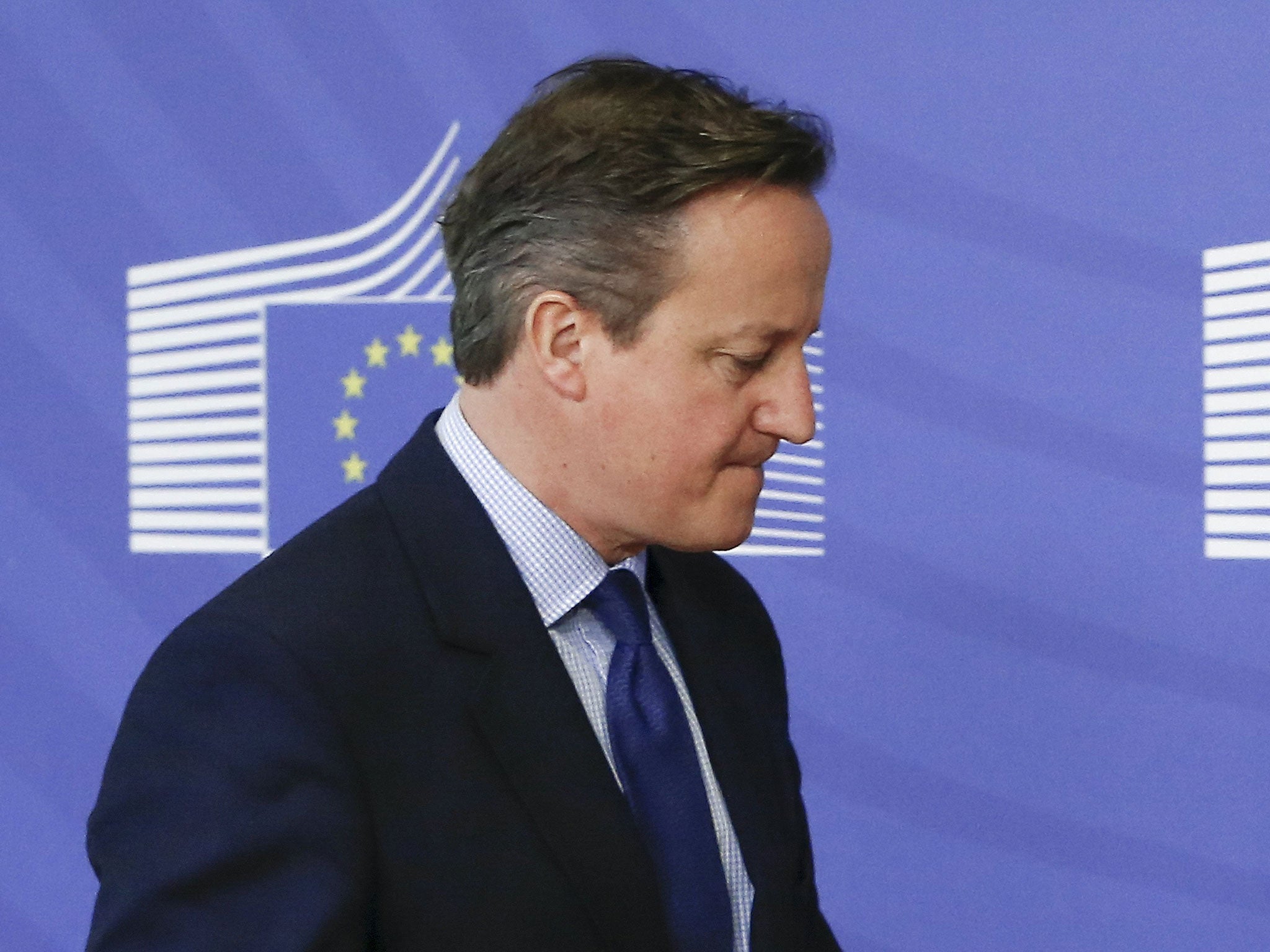Sketch: On EU Renegotiation, Cameron sends out all the wrong signals
Cameron arrived late for his EU reneogtiation speech at a German manufacturer of train signals, following a signal failure. Then, on the way home, someone applied the emergency brake.

To proclaim the success of his EU renegotiations, David Cameron chose as his backdrop the factory in Chippenham where German conglomerate Siemens manufactures train signals for the British railways.
It was not strictly his fault that the train the media had been instructed to take from Paddington was “run on an unplanned diversion due to a signalling fault between Swindon and Didcot Parkway”, but it was fittingly useful preparation for what was to come.
“Railway operators face the challenge of guaranteeing efficient, safe, and punctual operation,” Siemens Rail Automation proclaims on its website. “That’s why modern, efficient communications are a key element in managing rail traffic.”
Indeed they are. And when they fail, you should be prepared to see Robert Peston’s louchely coiffeured hair flopping over the First Great Western help desk at you and wanting to know, “Wwwwwwwwwhy the ten THIRTY is NOT stopping at Chhhiiiiippenham?”
To choose to deliver an important speech at a company that manufactures train signals, and then opt to travel there by First Great Western Train is a roll of the PR dice right up there with bringing out a range of gas ovens called ‘Zyklon’, as Siemens attempted to do in 2002, a mere 57 years after the liberation of their own private slave labour camp inside Auschwitz itself.
Safely on board the later eleven o’clock departure, which the Prime Minster had apparently always intended to take, we trundled towards Reading, Dave at one end of the train, us at the other. Meanwhile, the speaker granted an urgent question in the House of Commons on EU renegotiation at the exact time Dave was meant to be rolling up his sleeves on the factory floor and trumpeting his successful brokering of European semi-isolation, in what appropriately turned out to be the ‘Cubicle Build Area.’ Jeremy Corbyn demanded he “turn the motorcade around.” That there was no motorcade but such details are not sufficient to make make it one of Mr Corbyn’s more unrealistic demands.
It was unfortunate that an hour before David Cameron stood up proudly to proclaim how all his renegotiation demands had been met, the President of the European Council Donald Tusk had published a lengthy document explaining how none of David Cameron’s renegotiation demands had been met, but it was too late for another diversion, planned or otherwise.
Since before the election, Cameron has been claiming EU migrants must not be allowed to claim in-work benefits for four years.
“I was told I would never get a four year commitment,” he thundered, his suit jacket having flung itself on a nearby chair as it has now does semi-autonomously in manual labour settings. “There it is in the document.”
In fact the time period specified in the document, a document which has not yet been agreed upon by any of the other 27 EU member states, covers ‘a period of [X] years, extendable for two successive periods of [Y] years and [Z] years.’
But given no one knows what [X] is meant to equal, then why not?
Cameron had wanted an end to child benefit payments the children of EU migrants who are still living in their home country. What he got was a vague agreement that Britain would have to pay out no more than said child would be getting from his or her own government.
These two measures combined form the much flaunted ‘emergency brake.’ ‘Britain gets its emergency brake, right now!’ He claimed. As his senior advisers made their way back to London, halfway between Reading and Slough, someone pulled it, and they went nowhere for more than an hour. The Prime Minister had thought better of it, and taken a car. Whatever signals you choose to read into that are up to you.
Join our commenting forum
Join thought-provoking conversations, follow other Independent readers and see their replies
Comments
Bookmark popover
Removed from bookmarks